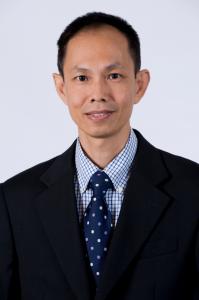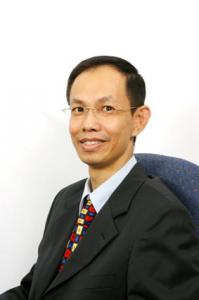Emeritus Professor Gary Goh Shares His Views on Life-Skills Education and Training for Individuals
Gary's forte is the ability to identify the patterns that limit and restrict individual and business growth. He is dedicated to helping people to advance their personal life, career and business exponentially and grow them successfully.
In this candid interview, he explains life-skills education and training which are both employability and survival skills in life.
James Victor: What is your teaching philosophy in life-skills education and training?
Gary Goh:
I focus in life-skills education and training which is lifelong learning and they are not taught in the academic world.
These skills provide learners with opportunities to develop themselves to their fullest potential throughout their life and inspired many people to achieve outcomes they had not believed were capable of.
Learners need to learn today, apply tomorrow in a practical and realistic manner, one that will make a real impact. They need to go head to head with real issues. For this reason, my learners engage in life-skills learning and engagement process which help them to develop a stronger awareness of self and others.
James Victor: Will you be able to provide a topic which you taught learners in your life-skills education and training?
Gary Goh:
Emotional intelligence is an example of a topic which I provide to learners that helps them to handle everyday occurrences.
In Emotional intelligence, there are four main interlinked which is:
S - Self-awareness
Observing yourself and recognizing the feelings as it happens.
S - Self-management
Once you are aware of your own emotions, you apply that knowledge to managing your own behavior.
S - Social awareness
You are aware of how others feel and of what is seen as appropriate behavior in your environment or role. It helps you create resonance or a positive reaction to you from other people.
R - Relationship management
Managing emotions in others, social competence and social skills.
Individuals need a balance of all the above four Emotional intelligence elements to have a significant impact on the life they led.
People are unique and need to be handled differently according to what motivates each one.
James Victor: Tell us how you consider a learner as a successful person who applies life-skills concepts in the real world.
Gary Goh:
A successful person is one who has the following:
Aware
Understands why and how he or she affects other people the way he or she does, and why other people affect him or her the way they do.
Accept
Develops a positive attitude about himself or herself including the strengths and weaknesses which cause others to trust and to have confidence in him or her.
Adapt
Develops the ability to study situations and people and to adapt through application of appropriate behavior strategies.
I advised my learners that there is no secret formula to being successful in life. Success can never be a destination. One never reaches it because there are further goals and changing objectives. Success is a journey. One should aspire to perform each task in a successful manner and be ready to move on to another more challenging and rewarding venture.
James Victor: Tell us about how you mentor and guide people for upward mobility and career success.
Gary Goh:
The following are some examples based on the premise that people can plan for upward mobility and career success.
1. The environment they move into is a stronger force than them. It will not change to accommodate them. They cannot afford to clash so strongly with the environment that they appear to be out of step. If they want to be accepted and become part of the team, they probably have to learn how to conform to the prevailing corporate culture. If they do not want to conform to a given environment, then do not take the job. Face reality as it is, not as they wish it to be.
2. Manage their job and career. Be realistic about their ambitions, strengths and weaknesses. Do not be over ambitious.
3. It is important to establish one's credibility with the staff, the clients, the business circuit and the bosses. Make sure their work is done on time, under budget, to company requirements, and with pride.
4. Be candid with everyone. Drop personal notes to colleagues who have achieved recognition. Develop a grapevine to give them feedback on their reputation. Keep close to the person whose job they may want, he or she often has a lot to say about a successor.
5. Sharpen their professional outlook. Be a professional in their skills, appearance, thinking, actions and accomplishments. Dress well and look sharp appropriately, but never overdo it. When people meet and greet them, they automatically see them as the polished, successful professional that they are.
6. Speak with conviction. Choose their words well. Be articulate, concise and to the point. People will respect this quality in them and because of it; they listen to what they have to say.
7. Serve on committees and task forces. Especially those with high visibility in public or the organization.
8. Join the relevant professional or trade body and become active if it is progressive. Meet as many people as they can.
James Victor: What do you expect learners to achieve from your life-skills education and training?
Gary Goh:
I hope to nurture learners to be tomorrow's leaders through a multi-faceted and experiential applied learning pedagogy. With robust social and life-skills learning opportunities outside the academic world, to develop professionally competent and socially conscious graduates who are able to serve their professions and communities with honesty and integrity.
I encouraged them to donate their time and talent. People who volunteer report greater happiness, better health and a deep sense of connectedness to community and the wider world. One does not have to be rich to give. When we believe kindness is an essential human nature, we will always treat others with love and compassion. By extending ourselves to help others in any capacity, we bring hope and beauty to those in needs and despair.
Compassion connects people; the bond between people grows through its beauty; its tolerance; its dedication and its sense of responsibility. When they integrate this into their daily life, their journey begins to transform, elevating them to a more blessed life. I encouraged them to give their compassionate love for humanity or for the world as a whole.
Doing good deeds and an inherent ability and desire to help others are the essence of my civic, moral, and life-skills motivational program. It is envisaged that my learners can make a collective mark for the greater good.
The outcome for my learners is to be well respected in the community and be a role model for other community members.
I empower people and encourages one to do a good deed everyday which provide endless opportunities to make an impact on the world.
These are all in the areas of community work and for the betterment of society.
More information about Emeritus Professor Gary Goh can be found in https://www.garygoh.com.au/biography.html.
Websites:
http://www.garygoh.com.au
https://www.amazon.com/Emeritus-Professor-Gary-Goh/e/B07R68RG2W%3Fref=dbs_a_mng_rwt_scns_share
https://www.dymocks.com.au/books/?author=gary+goh
Emeritus Professor Gary Goh
GaryGoh.com.au
+61 423 598 066
email us here
Legal Disclaimer:
EIN Presswire provides this news content "as is" without warranty of any kind. We do not accept any responsibility or liability for the accuracy, content, images, videos, licenses, completeness, legality, or reliability of the information contained in this article. If you have any complaints or copyright issues related to this article, kindly contact the author above.





